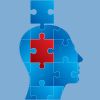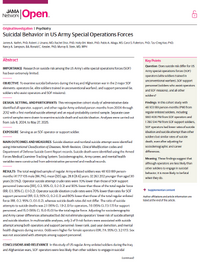|
|
Director’s MessageOur Center advances trauma-informed care through cutting edge research, education and training, and resources that draw upon our expertise in military and disaster psychiatry. . . . [more] |
DISASTER EVENTS
ISRAEL-HAMAS WAR MENTAL HEALTH RESOURCES
WAR IN UKRAINE MENTAL HEALTH RESOURCES - 3 videos added April 2024
Fact Sheets
 |
|
Publications
 |
|
Education and Training
 |
|
Research
 |
What’s New?
Brown University Shooting: Mental Health Resources to Support Community Recovery
Mass violence, such as the recent shooting at Brown University in Providence, RI, can be extremely stressful and make us feel unsafe and uncertain. CSTS resources will help you know what steps to take that can lower distress and improve functioning for yourself and those around you:
Please click HERE for action-oriented fact sheets and additional information to help individuals, communities, and organizations in the aftermath of the shootings at Brown University in Providence, RI.
Brain, Behavior, & Mind 2025 Fall Lecture
Brain, Behavior, & Mind is a series of global forums featuring distinguished scientists, clinicians, and leaders whose work spans neuroscience, psychiatry, psychology, and public health. Each event explores new insights in our understanding of health and illness.
Brain, Behavior, & Mind events are sponsored by the CSTS, in collaboration with USU’s Department of Psychiatry, Neuroscience Program, Department of Family Medicine, Center for Deployment Psychology, and Brain and Behavior Hub.
Article: Suicidal Behavior in US Army Special Operations Forces
Research on suicide risk among the U.S. Army’s elite special operations forces (SOF) has been extremely limited, but CSTS's STARRS team aims to bridge that knowledge gap with this new article in JAMA Network Open. CSTS Assistant Scientific Director, Dr. James A. Naifeh, and colleagues examine suicidal behaviors among SOF operators and SOF support personnel during the Iraq and Afghanistan wars.
Texas Flooding Disaster Mental Health Response and Recovery Resources
Catastrophic natural disasters, such as heavy rainfall and flash flooding across Central Texas, the Hill Country, and Concho Valley cause extreme disruption and can be stressful for individuals, families, and communities.
Please click HERE for resources
Video: Grief in the area of combat missions
Please click HERE for War in Ukraine Mental Health Resources











